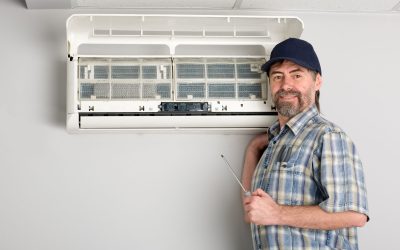For a first-time home buyer or owner in Atlanta, understanding all the technical jargon used in various service industries can be a challenge. It may seem that plumbers, electricians, and HVAC technicians are all talking their own language.
If you are in the market for an air conditioner replacement, there are several important words and phrases to understand. By having a good idea of what these industry specific terms mean you can make an, informed choice for an efficient, energy saving AC system for any size of home.
- Air flow – this provides information on the amount of air that the air conditioner will move or push throughout the system. Most air conditioners will push about 400 cubic feet per minute per ton of capacity of the AC system, with the somewhat humid Atlanta summers allowing for a slightly lower air flow requirement at about 350 cubic feet per minute per ton of AC capacity.
- Compressor – this is the part of the air conditioner that will increase the temperature as well as the pressure for the refrigerant. The compressor is also the part of the AC system that makes noise. Asking about the noise level of the compressor for an air conditioner replacement will be an important question as the quieter operating systems are the most desirable.
- SEER – this is the standard rating for central air conditioning units. SEER stands for Seasonal Energy Efficiency Ratio, and it provides the cooling ability divided by the energy efficiency. The higher the SEER rating (with 14 considered good), the more cooling ability the AC unit has and the lower the energy consumption.
- Tons – as in the air flow reading, tons of air conditioning capacity refer to the ability to remove heat from the home. A single ton of air conditioning capacity will remove 12,000 BTU (British Thermal Units) per hour. The higher the tons of air conditioning capacity, the more BTUs it removes in the hour.
It is important to ask questions when considering an air conditioner replacement. Be sure to understand how to compare different rating and information between systems and always ensure the right size system is being considered for any Atlanta home.



